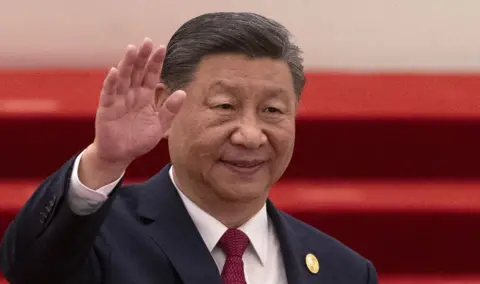China has announced a major policy shift to eliminate all tariffs on exports from Nigeria and 52 other African countries, granting them full duty-free access to its vast consumer market.
The announcement was made during the China–Africa Economic and Trade Expo held in Changsha, Hunan Province, as part of broader efforts to strengthen economic ties with the continent.
In a letter addressed to the summit, Chinese President Xi Jinping stated that China will extend zero-tariff treatment to 100 per cent of tariff lines for all African countries that have established diplomatic relations with it. This marks a significant expansion of an earlier policy that applied only to the 33 least-developed African nations.
China’s new trade initiative comes amid increasing efforts to deepen its economic cooperation with Africa. The policy spans both low- and middle-income countries, allowing for a wider range of African products to enter the Chinese market without restrictions.
“It enables middle-income countries like Kenya, South Africa, Nigeria, Egypt and Morocco… to be able to now enter the Chinese market duty-free,” said Hannah Ryder, founder of Development Reimagined, an Africa-focused consultancy.
Without a corresponding increase in African exports, experts warn that trade imbalances may persist. “Unless we have an equivalent increase of African exports to China, then trade deficits will continue to increase,” Ryder added, emphasising the need for African nations to seize the opportunity provided by the new policy.
Chinese exports to Africa rose by 12.4 per cent in the first five months of this year, reaching a record 963 billion yuan ($134 billion). However, China recorded a $62 billion trade surplus with Africa last year, underlining the importance of this policy shift in addressing that disparity.
The Chinese government has pledged additional support for less-developed African nations, such as Tanzania and Mali, offering training and marketing promotion to help them benefit from the new trade opportunities.
China’s Foreign Ministry reinforced its commitment to African trade by stating, “China is ready to… welcome quality products from Africa to the Chinese market.”
This comment followed a high-level meeting between senior Chinese officials and African foreign ministers in Changsha to review progress on commitments made during a summit in Beijing last September.
The new tariff-free policy is targeted at boosting industrialisation across the continent, especially in countries seeking to diversify their economies and reduce overreliance on primary exports. African exporters will now have greater access to one of the world’s largest markets, with improved competitiveness and reduced trade barriers.
Last year, China pledged 360 billion yuan ($50 billion) in credit lines and investments to African economies over a three-year period. The implementation of the tariff elimination policy is seen as a key part of that broader development and partnership framework.
With the removal of tariffs and continued Chinese investment, African countries are poised to strengthen their economic position, reduce trade deficits, and foster more balanced trade relations with China, setting the stage for a more equitable global trading landscape.
China has announced the removal of all tariffs on exports from Nigeria and 52 other African countries, granting them full duty-free access to the Chinese market. This policy shift was revealed during the China–Africa Economic and Trade Expo in Hunan Province, aiming to enhance economic ties with Africa. Chinese President Xi Jinping's announcement expanded an earlier policy that applied only to the 33 least-developed African countries, now including middle-income countries like Kenya, South Africa, Nigeria, Egypt, and Morocco.
The move is part of China's broader effort to deepen economic cooperation with Africa, potentially reducing trade imbalances by encouraging increased African exports to China. With Chinese exports to Africa up by 12.4% in the first five months of this year, China's $62 billion trade surplus highlights the need for this policy to stimulate more balanced trade. China's commitment to support less-developed African nations with training and marketing promotions is also a critical aspect of this initiative.
The tariff elimination is expected to boost industrialization across Africa, allowing countries to diversify their economies and decrease reliance on primary exports. China has also pledged $50 billion in credit lines and investments to African economies over three years, underscoring its commitment to fostering equitable trade relations and assisting African countries in enhancing their economic positions on the global stage.






